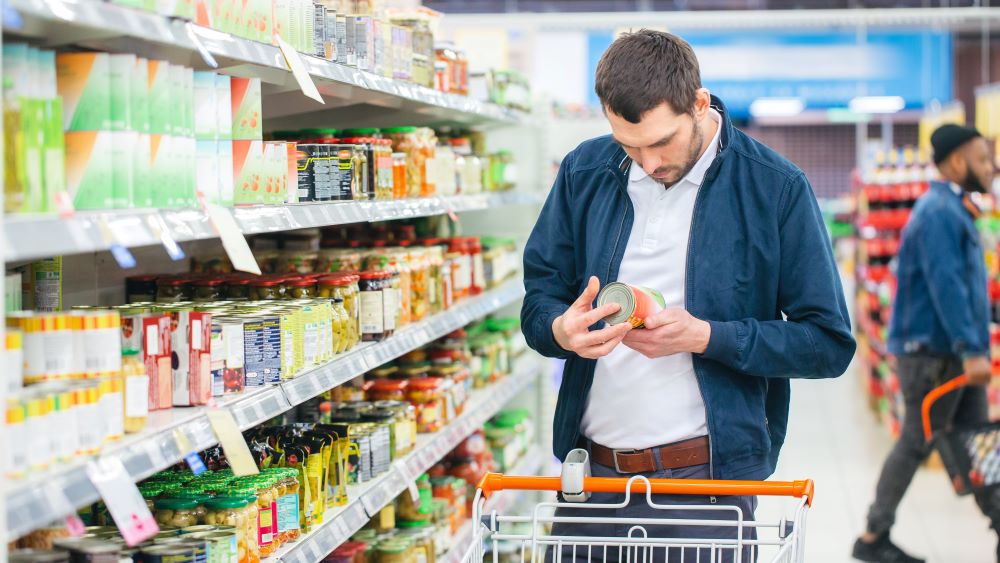
The government has been advised by experts at the Institute of Export & International Trade (IOE&IT) to prioritise addressing non-tariff barriers in order to control soaring food prices.
A study from the Centre for Economic Performance at the London School of Economics (LSE), reported in the Guardian, has found that UK households have paid, on average, an additional £210 on food bills over the last two years.
The report, titled ‘Non-tariff barriers and consumer prices: evidence from Brexit’, found that households paid an increase of £1.05bn in the two years following Brexit compared to the previous two years before the UK had left the EU single market and customs union, paying £5.84bn overall.
It comes after a price index from the British Retail Consortium found that food inflation hit 12.4% in November, up from 11.6% in October. Coffee, meat, eggs and dairy were among the goods to have seen the steepest price hikes, the BBC reports.
Impediments
Although there are no formal tariffs on food imports from the EU under the EU-UK Trade and Cooperation Agreement (TCA), companies have faced new requirements and costs, including complying with new sanitary and phytosanitary (SPS) rules.
Richard Davies, a professor at Bristol University and a co-author on the LSE report, said: “In leaving the EU, the UK swapped a deep trade relationship with few impediments to trade for one where a wide range of checks, forms and steps are required before goods can cross the border.”
No Swiss deal
It was recently reported that some senior figures were looking at the option of negotiating a deal with the EU that could remove some of the sanitary checks and rules for agrifood traders, based on an agreement that the bloc has with Switzerland.
Prime minister Rishi Sunak quashed these rumours, but Nikhil Datta, another co-author of the study and an assistant professor of economics at Warwick University, said the that non-tariff barriers should be a “first-order concern”.
“The policy implications are stark: non-tariff barriers are an important impediment to trade that should be a first-order concern, at least on a par with tariffs, for policymakers interested in low consumer prices,” she said.
Target Operating Model
Matt Vick, a customs and trade specialist at the IOE&IT, acknowledged the non-tariff barriers that have been introduced, but warned more changes are still to come. He told the IOE&IT Daily Update:
“As a result of Brexit, food importers now need to comply with new sanitary and customs rules. The report is clear that the administrative cost for this is being passed onto consumers.
“The government has made it clear that it will not be pursuing addressing these barriers through a new agreement with the EU. We should also be mindful that the government is yet to publish its plan for introducing the remaining import controls that have not yet been introduced on goods entering Britain from the EU.
“The Target Operating Model, which is due to be published soon, will include a plan to digitalise some of these checks, which could reduce some of the administrative burden on traders.
Digital solutions needed
Ilona Kawka, a digital trade and customs specialist at the IOE&IT, agreed that digitalising customs and SPS documentation requirements could help government to reduce trade barriers and address inflationary pressures.
She referred to the IOE&IT’s involvement in the government-backed Ecosystem of Trust pilots – an initiative that aims to allow government to more intelligently identify and manage risk on cross-border shipments by securely collecting data from throughout the supply chain, thereby reducing the number of checks on goods entering Britain.
She told the IOE&IT Daily Update:
“In the absence of regulatory change, it appears the government is looking to address barriers to trade through digitalisation, and paperless trade could help to address price inflation.
“We’re still awaiting the details of the Target Operating Model, but the IOE&IT knows, through its work on the government-backed Ecosystem of Trust pilots and various other initiatives, that digitalising trade procedures can have a significant impact on the journey times for goods and the number of checks that need to be carried out.”
Ecosystem of Trust
The technologies being utilised in the Ecosystem of Trust pilot that the IOE&IT is part of has already been used to support the movement of cut flowers from Kenya to Britain, and is currently also supporting imports of coffee and tea bags.
Jens Munch Lund-Nielsen, the head of global trade & supply chains at the IOTA Foundation, recently told the IOE&IT Daily Update that the initiative could lead to a “massive reduction in administration” for firms.
Referring to an example shipment from Nomad Foods which required 650 different documents to be completed to ensure compliance, he said: “If you can input the information digitally, you potentially have to only input that data once, rather than 650 times.”
Referring to the Ecosystem of Trust pilots, he said:
“The pilots will help them to prove points on process, on technology and on legislation.
“It’s important we take the right next steps for both traders and for the UK economy. We can then start to have digital trade corridors with other countries. This will improve access to markets without even needing to negotiate things like tariffs.
“This is the process that we are enabling – the reduction of non-tariff barriers.”



